Signs and Symptoms of Sleep Apnea That Need Immediate Treatment
Sleep apnea is a common yet potentially serious sleep disorder that affects millions of Americans each year. Characterized by repeated interruptions in breathing during sleep, this condition can have a significant impact on overall health and quality of life. At Dentistry Toothtruth, we aim to shed light on the critical signs and symptoms that necessitate prompt treatment.
Many individuals remain unaware of the severity of sleep apnea, often mistaking it for mere snoring. Understanding its signs is crucial for taking timely action and preventing further health complications. This guide will delve into the signs and symptoms of sleep apnea that demand immediate attention, providing insight from a dental health perspective.
1. Persistent Loud Snoring
One of the most common signs of sleep apnea is loud snoring. While snoring alone does not confirm sleep apnea, especially when it is regular and disrupts the sleep of others, it can be an indication of obstructed breathing. Several studies have shown that loud and persistent snoring is often linked with obstructive sleep apnea, a subtype that occurs when throat muscles intermittently relax and block the airway during sleep.
Research estimates that about 45% of adults snore occasionally, and 25% are habitual snorers. However, a large percent of these snorers suffer from sleep apnea without knowing it. Understanding the difference between benign snoring and sleep apnea-related snoring is essential. If snoring is coupled with gasping or choking noises, or if it results in daytime sleepiness, it's advisable to seek professional evaluation and treatment. Dental professionals at Dentistry Toothtruth are equipped with tools to assess and manage obstructive cases effectively.
2. Choking or Gasping During Sleep
Choking or gasping sounds during sleep can signify a more advanced state of sleep apnea. Such episodes indicate that breathing has been impeded to the extent of causing an individual to wake suddenly. This interruption in sleep not only affects rest quality but could also result in serious health implications.
The American Sleep Apnea Association highlights that these episodes frequently lead to irregular heart rhythms and increased blood pressure, both of which can exacerbate cardiovascular issues. If left untreated, sleep apnea can elevate the risk for heart attacks or strokes. Consistent documentation of these episodes, either through personal awareness or reports from sleep partners, is crucial for diagnosis. Treatment options are available that can alleviate these symptoms and restore normal breathing patterns during sleep.
3. Excessive Daytime Sleepiness
Excessive daytime sleepiness can be a direct consequence of fragmented sleep due to apneic episodes at night, and it's another critical indicator of sleep apnea that often goes overlooked. Individuals may find themselves nodding off during quiet moments, such as while watching TV, reading, or even driving, which poses significant safety risks.
Studies indicate that inadequate sleep caused by sleep apnea can negatively impact cognitive functions and mood. Individuals with untreated sleep apnea often report decreased job performance, memory lapses, and increased irritability. Addressing these symptoms early can prevent further decline in cognitive health and mental well-being. At Dentistry Toothtruth, our professionals are dedicated to restoring optimal sleep and ensuring patient safety through customized treatment plans.
4. Morning Headaches
Many sleep apnea sufferers experience frequent morning headaches, resulting from the reduced oxygen flow to the brain during apneic episodes. These headaches can vary in intensity but are generally described as tension-type pains.
The link between morning headaches and sleep apnea is well-documented in medical research. Data suggests that 50% of individuals with sleep apnea report experiencing regular headaches upon waking, impacting daily routines and overall life quality. Effective management of sleep apnea can drastically reduce headache occurrences, and in many cases, eliminate them altogether. Early intervention through dental appliances or CPAP therapy can offer significant relief.
5. Mood Changes and Irritability
Sleep plays a vital role in mood regulation, and any disruption can lead to significant emotional changes. Individuals with sleep apnea often experience mood swings, increased irritability, or even depression due to chronic sleep deprivation and fragmented rest.
Scientific studies indicate a strong correlation between untreated sleep apnea and various mental health issues. Addressing sleep apnea-related mood changes is crucial for improving overall mental health and quality of life. By seeking appropriate treatment, such as continuous positive airway pressure (CPAP) therapy or oral appliances, many patients notice a marked improvement in their emotional well-being. At Dentistry Toothtruth, we emphasize the importance of a holistic approach to treatment, considering both the physiological and emotional aspects.
6. Reduced Attention Span and Memory Difficulties
The lack of restorative sleep in individuals with sleep apnea often affects concentration and memory retention. Persistent fatigue can cause people to struggle with attention, decision-making, and recalling information, adversely affecting work performance and daily activities.
Multiple studies reveal that middle-aged adults with untreated sleep apnea display poorer memory and cognitive performance compared to those who receive adequate treatment. It becomes crucial to address these symptoms early on, as continuous cognitive decline can lead to severe consequences, including an increased risk of developing dementia. Solutions such as CPAP devices and dental appliances effectively enhance cognitive function by ensuring unobstructed breathing during sleep, thus promoting deeper, more restful sleep cycles.
In conclusion, recognizing the signs and symptoms of sleep apnea that require immediate treatment is crucial for maintaining overall health and preventing long-term complications. Persistent loud snoring, choking during sleep, excessive daytime sleepiness, morning headaches, mood changes, and cognitive difficulties are all indicators that should prompt a visit to a healthcare provider. As emphasized at Dentistry Toothtruth, early detection and treatment of sleep apnea not only improve sleep quality but also enhance daily functioning, emotional well-being, and cognitive health.
We recommend individuals experiencing any of these symptoms consult with a healthcare provider specializing in sleep disorders. Treatments are personalized and may include lifestyle changes, CPAP therapy, or the use of oral appliances. timely intervention is key to a healthier and safer life.

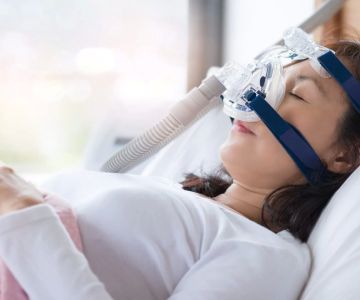
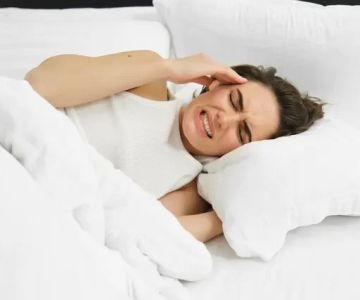
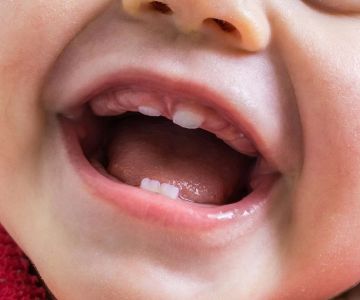
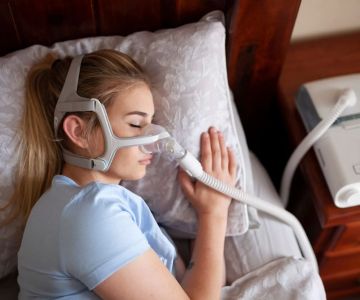
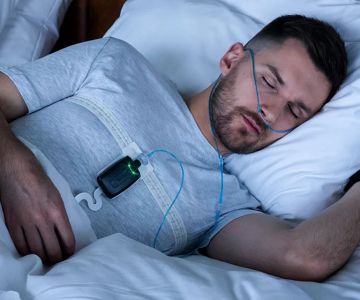
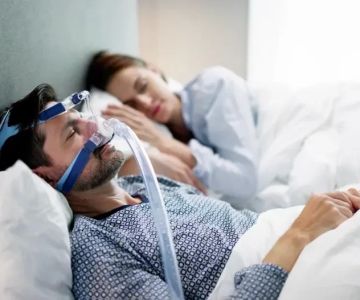
 Westgate Dental Arts
Westgate Dental Arts Coventry Family Dental
Coventry Family Dental Familia Dental
Familia Dental Dr. Daniel S. Fife, DDS
Dr. Daniel S. Fife, DDS Dentistry At Suburban Square: Michael I. Wollock, DMD
Dentistry At Suburban Square: Michael I. Wollock, DMD Comfort Care Dental
Comfort Care Dental The Importance of Oral Health Education During Pregnancy for a Healthy Pregnancy
The Importance of Oral Health Education During Pregnancy for a Healthy Pregnancy Why Skipping Dental Checkups Can Lead to Bigger Oral Health Problems
Why Skipping Dental Checkups Can Lead to Bigger Oral Health Problems Best Tips for Brushing Your Teeth Properly for Healthy Gums: Essential Techniques for Oral Health
Best Tips for Brushing Your Teeth Properly for Healthy Gums: Essential Techniques for Oral Health Advantages of Porcelain Dental Restorations
Advantages of Porcelain Dental Restorations How Can Diabetes Cause Tooth and Gum Problems? Preventing and Managing Oral Health Issues
How Can Diabetes Cause Tooth and Gum Problems? Preventing and Managing Oral Health Issues Healthy Habits for Promoting Good Oral Health and Hygiene: Tips for a Healthy Smile
Healthy Habits for Promoting Good Oral Health and Hygiene: Tips for a Healthy Smile